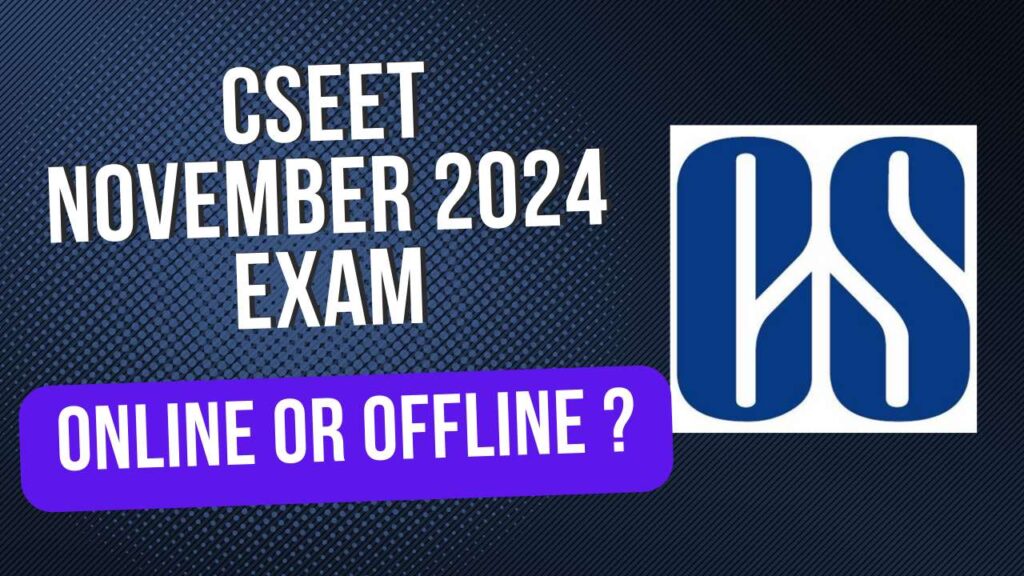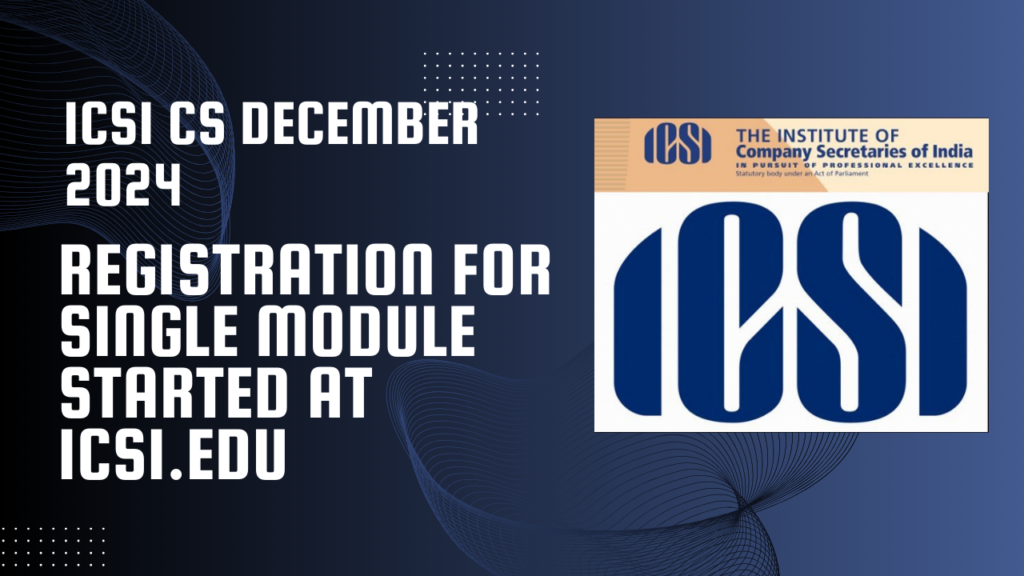Jurisprudence, Interpretation and General Laws is one of the most important subjects of the CS Executive examination. It is the first subject of the Module 1 of CS Executive. As we know that CS Executive is the second stage of the professional course of Company Secretary. The executive stage is basically designed to inculcate skills and competence of executive program passed students. The reason for inclusion of this important subject in the curriculum is to make students capable and competent to understand laws and legal regulations.
- An outline of Company Secretary Courses and Specialization- Executive Programme Papers
- ICSI CS Executive New Syllabus Study Material : Module 1
- An Overview of the subject
- CS Executive Examination Syllabus of this subject
- Meaning of Jurisprudence
- Objective of introducing this subject in CS Executive course
- Strategy for Preparation
- Study Plan
- Some reference books
An outline of Company Secretary Courses and Specialization- Executive Programme Papers
There are 8 papers divided into 2 Modules in CS Executive Programme (wef. 01.03.2018)
| MODULE 1 (4papers) | MODULE 2 (4 papers) |
|---|---|
| 1. Jurisprudence, Interpretation & General Laws | 5. Corporate & Management Accounting |
| 2. Company Law | 6.Securities Laws & Capital Markets |
| 3. Setting Up Of Business Entities And Closure | 7.Economic, Business And Commercial Laws |
| 4. Tax Laws | 8. Financial And Strategic Management |
ICSI CS Executive New Syllabus Study Material : Module 1
| Paper | Coverage |
|---|---|
| Jurisprudence, Interpretation & General Laws | Constitution of India, Law of Torts, Interpretation of Statutes & Other General Laws (Limitation, Specific Relief, Evidence, Stamp, Registration, General Clauses, CPC, CrPC, Arbitration, RTI) |
An Overview of the subject
The subject is made up of three components i.e. Jurisprudence+ Interpretation+ General Laws.
It is important to understand that study of this subject does not refers to any particular law in force rather gives a general understanding and gripe over the legal environment and related concepts.
CS Executive Examination Syllabus of this subject
Before planning the study curriculum, first of all we should know the contents of the subject. Following is the arrangement Of Study Lessons in this subject
| Subject | Study Lessons |
|---|---|
| Module-1 Paper-1 Jurisprudence, Interpretation and General Laws | 1. Sources of Law 2. Constitution of India 3. Interpretation of Statutes 4. General Clauses Act, 1897 5. Administrative Law 6. Law of Torts 7. Limitation Act, 1963 8. Civil Procedure Code, 1908 9. Indian Penal Code, 1860 10. Criminal Procedure Code, 1973 11. Indian Evidence Act, 1872 12. Special Courts, Tribunals under Companies Act & Other Legislations 13 Arbitration and Conciliation Act, 1996 14. Indian Stamp Act, 1899 15. Registration Act, 1908: Registration of Documents 16. Right to Information Act, 2005 17. Information Technology Act, 2000 |
Meaning of Jurisprudence
In simple terms, jurisprudence means the that branch of law which implies the study of law in a logical and systematic and philosophical manner. the origination of this word is from latin word “Jurisprudentia” which implies legal theory.
Objective of introducing this subject in CS Executive course
To provide understanding and working knowledge of sources of law, Constitution, legislative environment, interpretation of statutes and general laws.
The main objective of introducing this subject is to give an overview to the students regarding legal reasoning, legal institutions and legal systems. This subject also gives an indepth understanding of the legal regulations and role of such legal regulations in the system. This subject basically focuses on law and social values. It helps the students to understand the legal thoughts and divisions of law associated with the subject contents.
As we all know the requirements of interpretation arises whenever there is lack of clarity in the provisions of law. This branch of the subject comes into the picture whenever the provisions mentioned in the law are either contradictory in nature or they are implying any different meaning against the spirit of the statute.
Coming to the next portion of this subject i.e. General Laws, please note that this serves as a preliminary understanding of the technicalities involved in the legal course of Company Secretary. This part includes various branches such as Constitutional law which is infact a fundamental law for the students for making a grip on the whole subject. Similarly other laws mentioned herein include Civil and Criminal Procedure Code, Right to Information Act 2005 and many others.
As quoted by Institute of Company Secretaries of India, “Fundamental objective of this Subject is to enable the students to understand and acquire working knowledge of Jurisprudence, Interpretation and General Laws. After studying this, the student will be able to analyze principles underlying the legal postulates and propositions, and connection between theory of law and practice”
Strategy for Preparation
- Understanding the requirements of the subject-First of all the students should understand the requirement of the paper and subject thoroughly. The subject is divided into 3 components – Jurisprudence, Interpretation, and General Laws. The main objective of the paper is to understand briefly the laws and their interpretation in general.
- Dynamic subject-At the same time the student needs to remember that it is not a static subject like accounts or costing rather it involves a lot of dynamic elements.
- Quoting recent case laws-While attempting the examination, the student is required to add relevant and important recent examples from current affairs happening in and around business.
- Constitution of India-As we know that Constitution Act is an important chapter of this subject, hence the student is required to be well-versed with the Constitution of India and its features.
- Writing Practice-A lot of writing practice is required for attempting and clearing this paper as this paper is descriptive in nature.
- Periodicity of writing-Frequent practice is always a key to success. Therefore every student has to always keep in mind that periodic answer-writing is a must during preparation. Most of the students tend to postpone the writing practice to the end of syllabus completion, which often runs into chaos.
- Fundamental topics of subject-Last but not the least, the students need to be aware of the fundamentals and key definitions, amendments to the Acts, Powers, features, and functions of the provisions of the acts, especially before the examination.
Now we will make a framework for studying and preparing this subject, chapter wise.
| Important topics to be covered | |
| Chapter 1 Sources of Law | Meaning of law and its significance; Relevance of Law to Civil Society; Jurisprudence; andLegal Theory. |
| Chapter 2 Constitution of India | Understand Broad Framework of the Constitution of India; Fundamental Rights; Directive Principles of State Policy; Fundamental Duties; Powers of Union and States; Judicial framework; Legislative Process; Parliamentary Standing Committees and their Role; Writ Jurisdiction of High Courts and the Supreme Court; and Different types of writs. |
| Chapter 3 Interpretation of Statutes | True intention of the Legislature Judicial process of determining, in accordance with certain rules and presumptions, the true meaning of the Acts of the Parliament. |
| Chapter 4 General Clauses Act, 1897 | Fundamental knowledge of the Key Definitions; General Rule of Construction; Retrospective Amendments; and Powers and Functions under the Act. |
| Chapter 5 Administrative Laws | Conceptual Analysis; Source and Need of Administrative Law; Principle of Natural Justice; Administrative Discretion; and Judicial Review |
| Chapter 6 Law of Torts | Understand the general conditions of Liability for a Tort; Strict and Absolute Liability; Vicarious Liability; Torts or wrongs to personal safety and freedom; and Liability of a Corporate Entity/Company in Torts; Remedies in Torts |
| Chapter 7 Limitation Act, 1963 | Computation of the Period of Limitation; Bar of Limitation; Effect of acknowledgment; Acquisition of ownership by Possession; and Classification of Period of Limitation. |
| Chapter 8 Civil Procedure Code, 1908 | Structure and jurisdiction of Civil Courts; Basic Understanding of Certain Terms Order, Judgment and Decree; Stay of Suits; Cause of Action; Res Judicata; Summary Proceedings; Appeals; Review and Revision; and Summary Procedure. |
| Chapter 9 Indian Penal Code, 1860 | Offences against Property; Criminal Misappropriation of Property; Criminal Breach of Trust; Cheating; Forgery; Defamation; and Abetment and Criminal Conspiracy |
| Chapter 10 Criminal Procedure Code, 1973 | Classes of Criminal Courts; Power of Courts; Cognizable and Non-Cognizable Offences; Summons and Warrants; and Summary Trial |
| Chapter 11 Indian Evidence Act, 1872 | Statements about the facts to be proved; Relevancy of facts connected with the fact to be proved; Facts of which evidence cannot be given; Oral, Documentary and Circumstantial Evidence; Burden of proof; and Improper admission & rejection of evidence |
| Chapter 12 Special Courts, Tribunals under Companies Act & Other Legislations | Understand the Constitution and Powers of Tribunals; Familiarize with Procedure before Tribunals; Appeal to Supreme Court; and Know the Powers of Special Courts. |
| Chapter 13 Arbitration and Conciliation Act, 1996 | Arbitration Law in India; Appointment of Arbitrators; Judicial Intervention; Arbitral Award; and Conciliation and Mediation. |
| Chapter 14 Indian Stamp Act, 1899 | Principles of Levy of Stamp Duty; Mode and timing of Stamp Duty method of Stamping; Person responsible; Consequences of Non-Stamping and Under-Stamping; and Concept of E-Stamping |
| Chapter 15 Registration Act, 1908: Registration of Documents | Registerable Documents; Documents whose registration is compulsory; Documents of which registration is optional; and Consequences of Non-Registration. |
| Chapter 16 Right to Information Act, 2005 | Public Authorities & their Obligations; Right to Information; Role of Central/State Governments Central Information Commission; and State information Commission |
| Chapter 17 Information Technology Act, 2000 | Digital Signatures; Electronic Record; Certifying Authority; Digital Signature Certificate; Appellate Tribunal; and Offences and Penalties. |
Before reading further check out these posts:
Study Plan
1. Ensure complete understanding of the CS Study Material
2. Practice of making notes
3. Start with a proper Time Table
4. Setting targets
5. Analysing the actual performance very week
6. Never Do following-
- Never go with selective topics
- Never refer old study material
- Try to finish your revision beforehand
Some reference books
The study material released by ICSI is actually more than enough for CS Executive Exam preparation. Still students can refer following books for preparation of CS Executive Exam.
- Jurisprudence Interpretation & General Laws (CS-Executive) (Dec 2019 Exam-New Syllabus)(3rd Edition July 2019)
- Jurisprudence Interpretation and General Laws CS Executive Programme Latest Edition New SyllabusBy Sangeet Kedia Applicable for December 2019 Exam
- Complete Guide CS Executive Programme Module – I (2017 Syllabus) Paper – 1 Jurisprudence, Interpretation and General Laws (Regular Edition)
Best Authors
- N.S. Zad and Nilamkumar Bhandari
- Sangeet Kedia
- CA Chayan Vijay


















